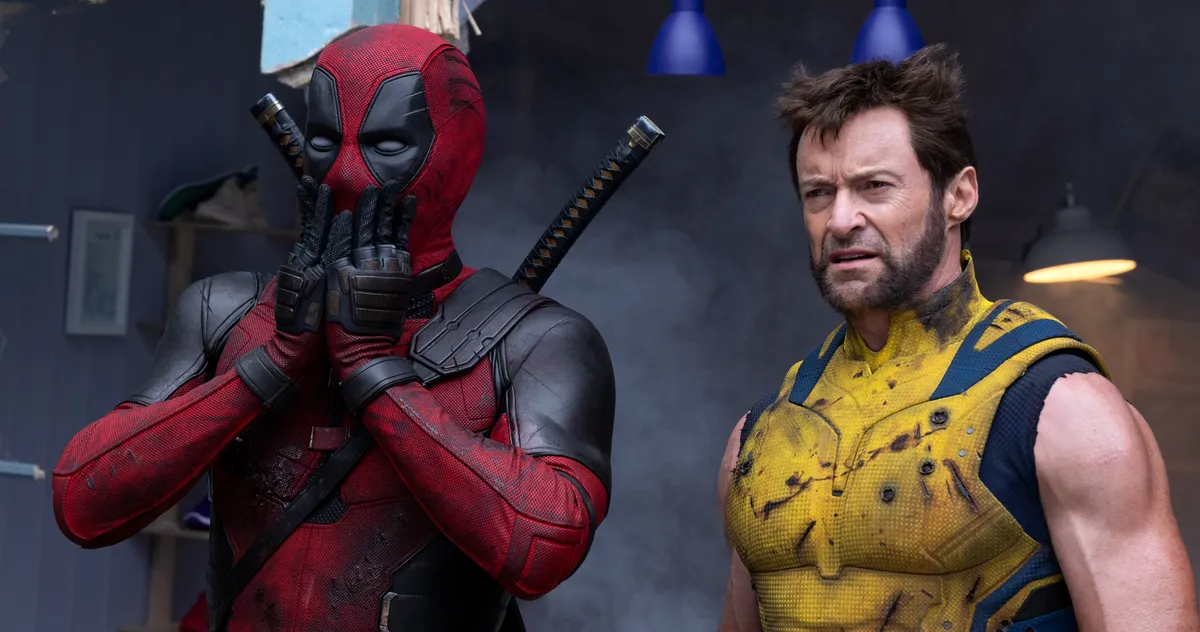Fasten your spandex—Marvel’s most obnoxious court jester has stormed the palace and, with an exhausted growl, dragged along cinema’s most battered—if not beloved—mutt: Wolverine. Ryan Reynolds, as Deadpool, doesn’t simply arrive in the MCU—he crash-lands, splattered across the screen with the sort of anarchic acid you expect when a franchise finally stops playing spin-the-bottle and just licks the wounds. Hugh Jackman’s Wolverine, back from the grave, looks at once chewed up and feral—he’s the aging gunslinger who’s realized the last bar’s happy hour is over and the piano man’s dead.
Shawn Levy, drafted into this meta-carnival like a sitcom dad forced to chaperone prom, orchestrates a parade of slapstick and barbed slapdowns. Imagine a director herding cats, only the cats are high on their own IP. The movie is a pileup, a glorious traffic accident on the digital freeways of continuity, and anyone who shows up expecting the customary Marvel traffic cones and directions is lost before the first splatter of blood. Levy, you can hear him muttering behind the scenes—“Did I sign up for this or just lose a bet?”
There’s a plot, I suppose—a little worm of narrative pensioning for order beneath the foot-stomps of franchise chaos. Deadpool, out of sheer boredom with linear time, sets off bouncing from era to era (and meta to meta), ribbing not just the world but the calendar itself. The “quest” is less about saving anything and more about gleefully eviscerating what’s left of coherence. Enter Wolverine: stoic, seething, a battered straight man with claws out and patience on life support. Together, they spin through a universe so scrambled it makes Looney Tunes look like Tolstoy. By the time Deadpool’s wishing Disney a nervous breakdown, you begin to sense the real drama here isn’t good versus evil—it’s copyright law versus punchlines.
It’s a superhero buddy pic on peyote: Deadpool as Bugs Bunny with a hangover, Wolverine as an alley cat who’s been hit by every oncoming car. The stunts are less choreography than derangement—Deadpool gets himself crucified on the bright lights of pop culture, winking at the fourth wall like a one-man chain letter, while Wolverine fumes and mutters as if he’s counting out the rosary of his regrets. Nowhere else would martyrdom come with so many gags. If you ever wanted Nietzsche filtered through a food fight—congratulations, Marvel has finally obliged you.
Reynolds, electric-eyed and serotonin-deprived, is genetically engineered for the job; he never lets a punchline go unslapped, never leaves a meta-joke unfondled. He even finds room for the sort of sincerity that should come with a warning label. Jackman’s Logan, meanwhile, wears his trauma like an old leather jacket—a little too proud, a little threadbare, a repository for all the world’s gruff affections. Watching these two is like witnessing a cross between Lethal Weapon on laughing gas and Camus’s The Fall rewritten in emoji—they crash, they claw, they almost care, and then they stub each other’s toes for sport.
Levy’s direction is less “canvas” than “food fight at the Louvre”: bullets pirouette, bodies fly, and the odd pixel looks like it snuck in through the server room door. And still—still!—when you’ve got Deadpool likening Wolverine to a “Canada-bound Sasquatch with mommy issues,” why even bother checking for seams in the green screen?
But, as in the best orgies of pop sensation, there’s a drag of feeling yanked up—almost against its will—out of the comedic rubble. Reynolds, in between detonations of smarm, drips out the kind of sadness comic books don’t teach: “the saddest superhero since Spider-Man.” Jackman’s Wolverine, all battered iron and broken-down tenderness, lets just enough remorse slip through to make you believe he remembers better days—if only to regret them harder. The “bromance” is a fire escape from self-destruction: they might hate each other, sure, but by the third punch-up, they’re the last real thing standing.
Emma Corrin, as the slumming villain, is a martini on ice—razor-cold, dry, and likely to leave you with bruises. The cameo parade is as thick as sequel rumors, each walk-on a jolt of Proustian nostalgia, or maybe just proof that no one in Hollywood really dies—they cameo. Fans will giggle; the uninitiated will wonder if they’ve been scammed at the multiplex.
Is this the redemption of Marvel? No, and thank goodness—who needs a new religion when the old gods are this much fun in the ruins? Deadpool & Wolverine is a love letter written in permanent marker across the inside of a battered gym locker: the holes in the narrative are wide enough for a tank, but who’s tracking the plot when the wisecracks are ricocheting like shrapnel? For those who secretly wished the franchise would finally just admit it’s lost its mind, revel in this: Deadpool finally stops pretending.
Deadpool eviscerates the fourth wall; Wolverine just tries—horribly—to keep his trousers on. For two delirious hours, nobody gets dignity, and everyone goes home grinning. That’s the punchline Marvel, for one shambolic, beautiful moment, actually earns.


